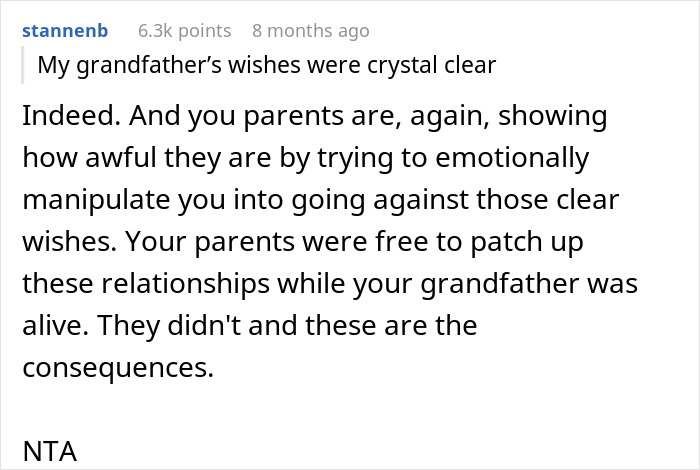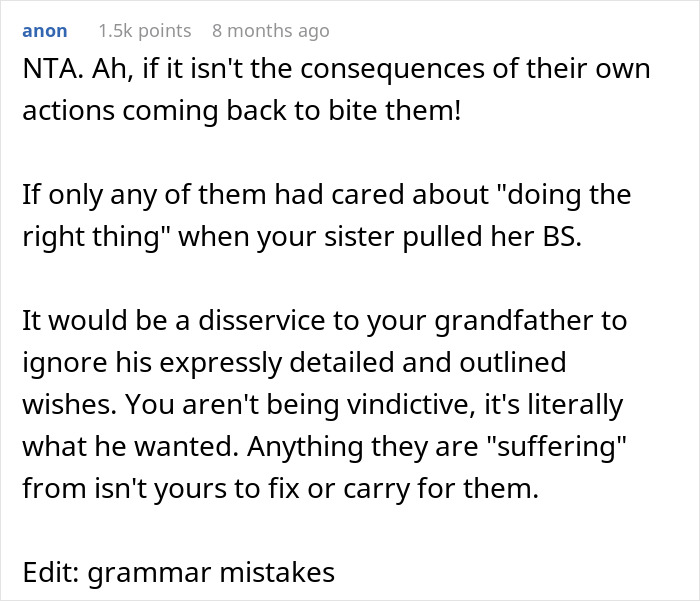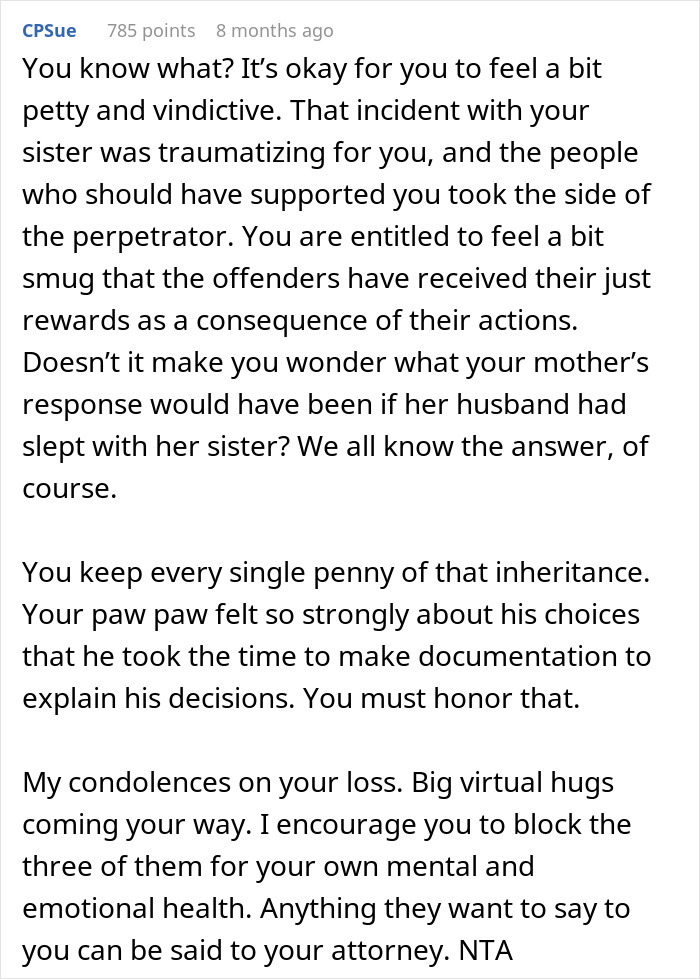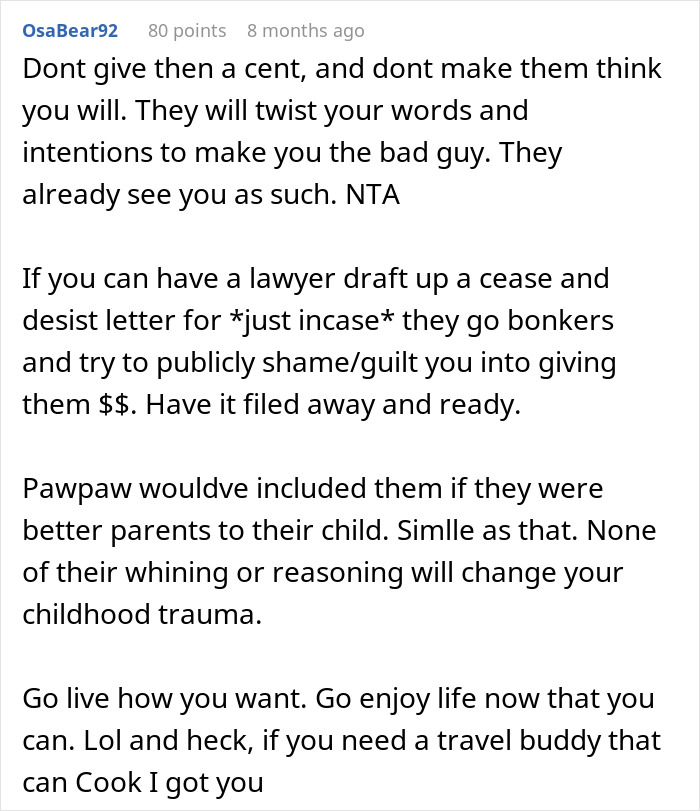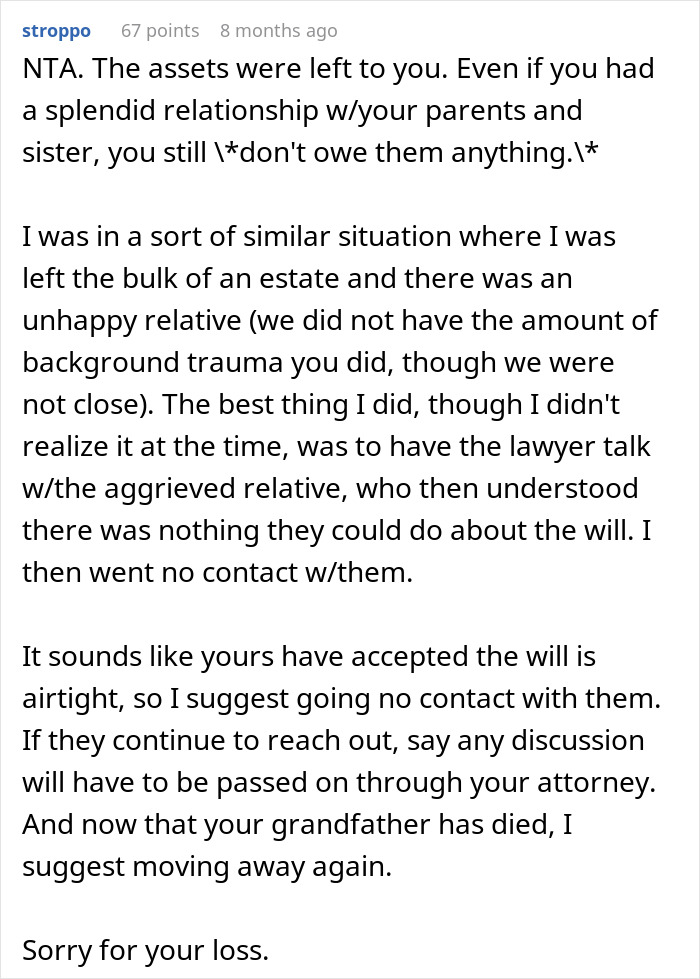Money complicates relationships, and more so if they were difficult to begin with. When that money comes from within the family, say, an inheritance, some family members might feel entitled to at least a portion of it. Unfortunately, past grievances and wrongdoings often come into play, as old wounds might get reopened.
A few months back, a woman asked the Internet whether she would be a jerk if she didn’t share the money her grandpa had left her with the rest of the family. Because her sister’s past actions caused a rift between them, she had hardly any contact with her parents. But when her loving grandfather decided to leave everything in his will to her, the family members came a-knocking.
When one person in the family inherits money and others don’t, there’s bound to be conflict

Image credits: Craig Adderley / pexels (not the actual photo)
This woman shared a story of how her family members felt entitled to her inheritance
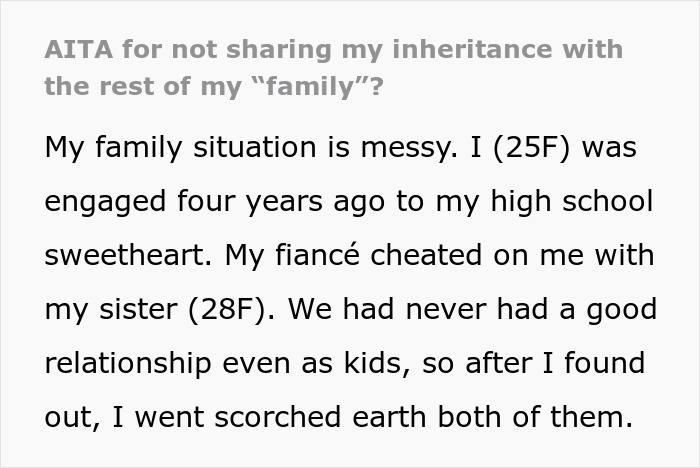

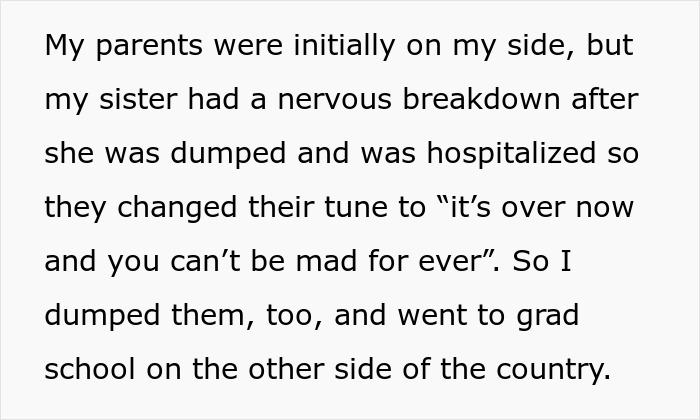

Image credits: Karolina Grabowska / pexels (not the actual photo)

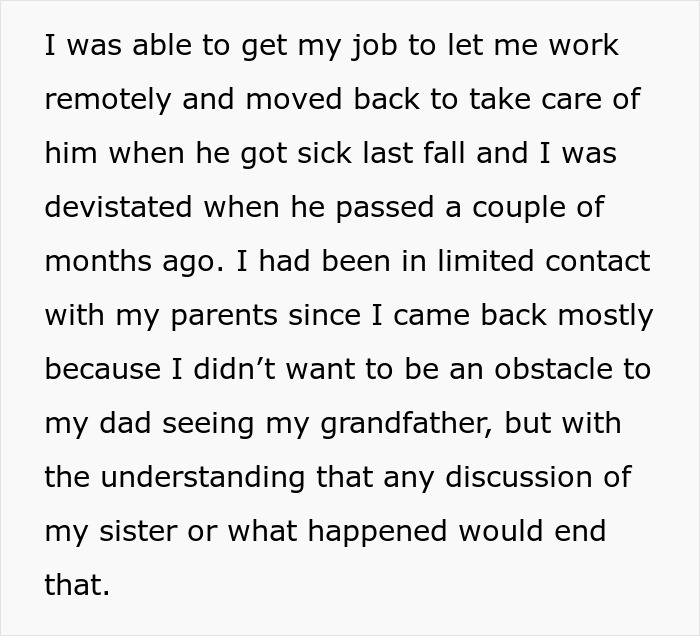
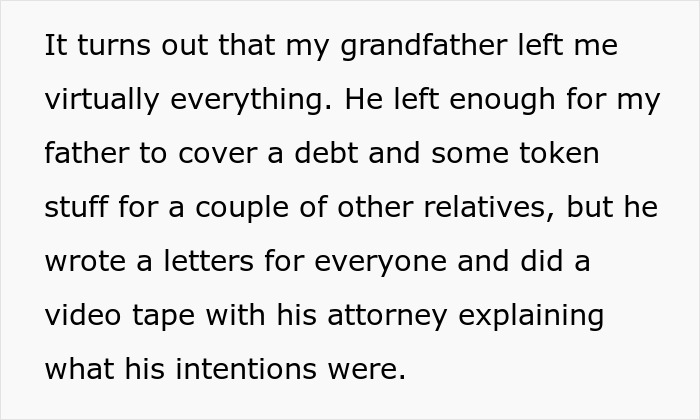
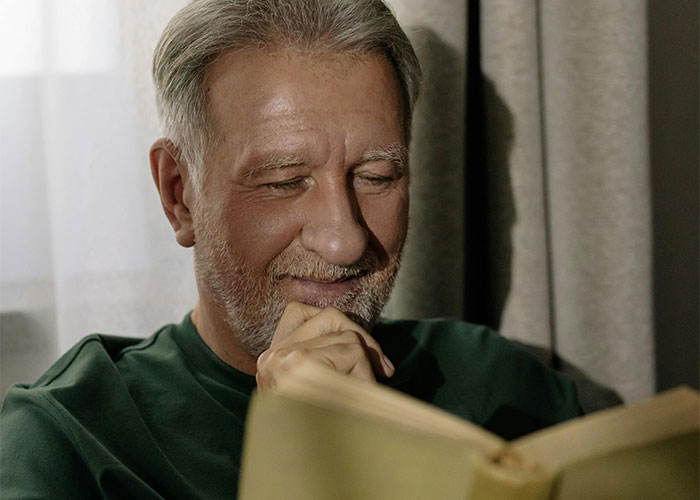
Image credits: cottonbro studio / pexels (not the actual photo)

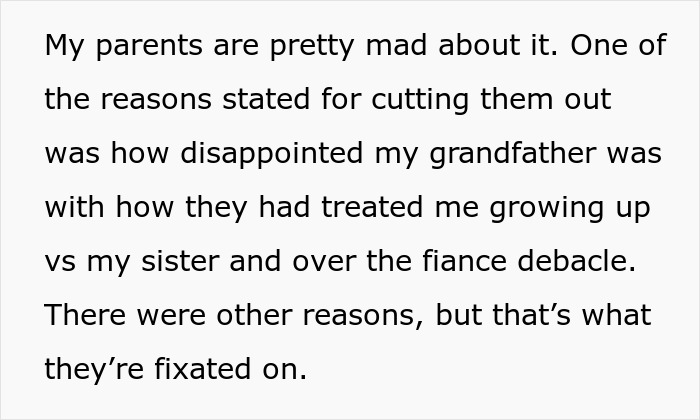
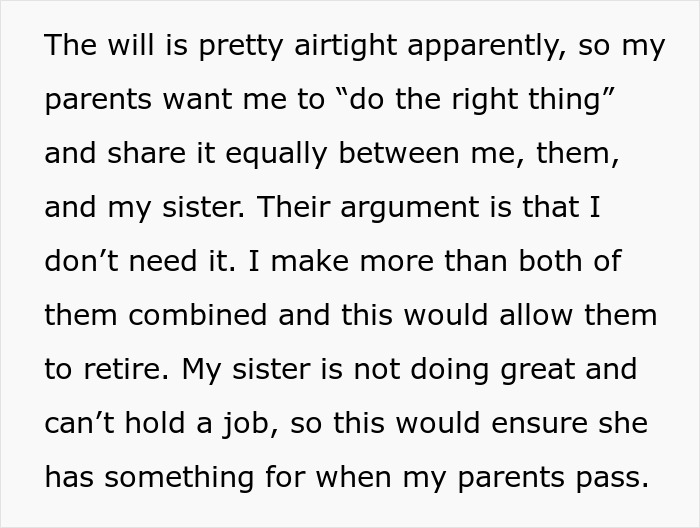

Image credits: Gustavo Fring / pexels (not the actual photo)
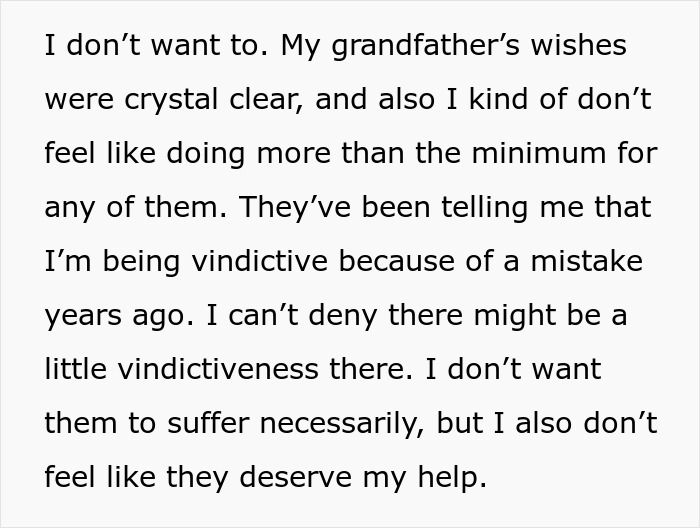
Image credits: Pretend_Canary_9411
Experts recommend keeping money and family separate if possible
Money can seriously complicate relationships, whether it’s a friendship, a romantic relationship, or a family ordeal. Financial therapist Nathan Astle told us previously that sudden windfalls “almost always” result in some kind of conflict.
“This is actually a fairly common experience for people where there is a drastic shift in their wealth. Friends, family, and even your kindergarten pen pal come asking for favors.” Whether a person should share an inheritance with their family also depends on their culture.
“Family and societal cultures handle money differently,” Astle explained back then. “Some are more individualistic, where the focus is on the individual’s success, while collectivistic cultures prioritize the group’s well-being.” The OP’s parents seem to prefer the latter — that a family member should share their financial wins with others.
Astle told us that, generally, in his experience, family and money are better off kept apart. “You never want to question whether the relationship is about safety and genuine enjoyment or if it is just a ploy for money. That can really mess with our brains.”

Image credits: Karolina Grabowska / pexels (not the actual photo)
Forcing the sisters to reconcile might only backfire
Another problem in this story is that the woman feels estranged from her parents and sister to some degree. Due to the sister’s behavior in the past and the fact that the parents took her side, she feels unable to have a relationship with them.
The family thinks that they’re entitled to a portion of the inheritance simply because they’re family. They also don’t understand why their daughter doesn’t want to reconcile with her sister and accuse her of being vindictive. They don’t seem to realize that the OP is not ready to reconcile with them or her sister.
In a previous article, family estrangement expert Karl Melvin explained to Bored Panda that family members might push for reconciliation because they value familial relations above all else. Some people think that blood ties trump any negative history and can’t understand why a family member might not want anything to do with them.
But family members shouldn’t force the estranged person to make up. In fact, forced reconciliation often does more harm than good. “Not everyone has the same concept of what reconciliation is,” Melvin explained. “Some view it as a continuation of the old relationship as opposed to a genuine effort to reflect on mistakes made and work towards creating a more respectful and healthier relationship.”
As trauma psychotherapist Amanda Ann Gregory told Bored Panda in a previous interview, reconciliation with estranged family members does not equal forgiveness. “Reconciliation does not wipe the slate clean, nor does it dictate what the relationship will become,” she said.
Gregory claims that one of the main reasons people remain estranged is that one party doesn’t feel safe. “They may not feel safe to have any relationship with a family member for multiple reasons, such as it feels too overwhelming and emotionally unsafe to address their own childhood trauma, lack of attachment, guilt, shame, and make any needed changes in order to reconcile.”

Image credits: Liza Summer / pexels (not the actual photo)
It turns out the daughter took care of the grandpa as his life was nearing its end

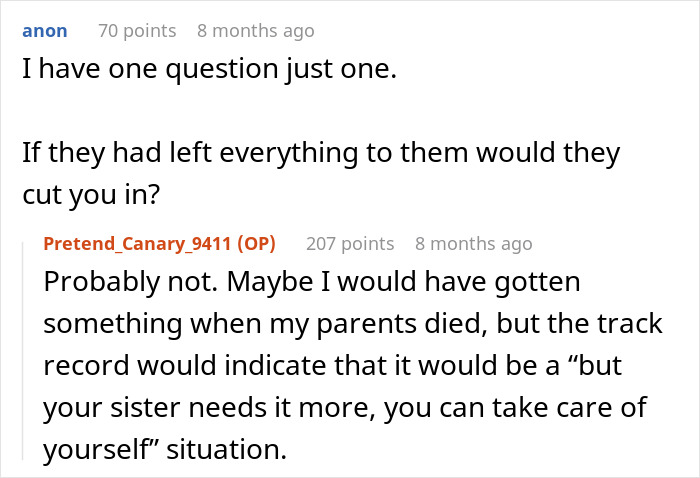
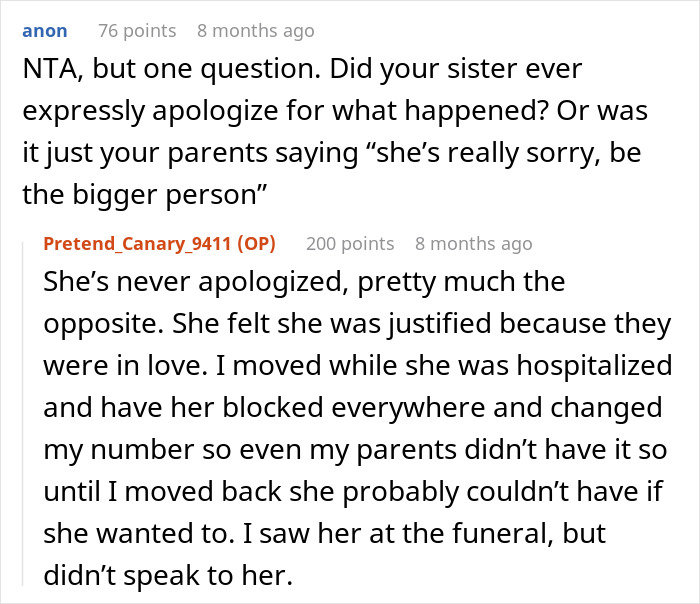

People’s verdict was that the granddaughter was not the AH here

